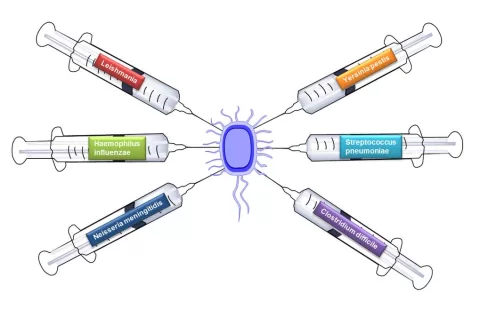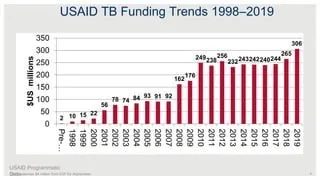The recent HHS budget cuts have sparked significant debate on Capitol Hill, as Secretary Robert F. Kennedy Jr. defends the drastic reductions and restructuring initiatives impacting the Department of Health and Human Services. Under the aegis of the Trump budget proposal for 2026, these cuts are touted as necessary measures to enhance HHS efficiency, eliminating redundancy and bureaucratic bloat. Kennedy argues that by streamlining operations, the agency can better allocate funds to address pressing health issues, despite the plan including substantial NIH funding cuts. Critics assert that these budget cuts jeopardize critical health programs, creating a rift between party lines in Congress. As the discussions unfold, the implications of these changes prompt urgent questions about the future of public health funding in America.
In a move aimed at redefining federal health agency operations, Secretary Kennedy’s recent initiatives have brought about notable shifts within the Department of Health and Human Services (HHS). The proposed budget alterations, reminiscent of past reforms, showcase a commitment to reducing governmental inefficiency while channeling resources directly towards public health outcomes. By advocating for a leaner, more focused HHS structure, these alterations reflect a trend towards prioritizing evidence-based solutions to chronic health challenges faced by Americans. The ongoing discourse surrounding these budgetary reforms highlights the tension between policy aims and the practical repercussions on public health funding and services. As lawmakers dissect the ramifications of these decisions, the future landscape of health administration remains uncertain.
Impact of HHS Budget Cuts on Federal Health Services
The budget cuts proposed by the Department of Health and Human Services (HHS) under Secretary Robert F. Kennedy Jr. have sparked significant debate regarding their impact on federal health services. Kennedy has argued that the cuts, which include a projected 26% reduction in discretionary spending as outlined in the Trump budget proposal for 2026, are essential for streamlining operations and eliminating bureaucratic inefficiencies. By reducing the HHS workforce significantly—from 82,000 to 62,000—Kennedy aims to redirect funds away from what he deems unnecessary expenditures towards direct health outcomes that serve the American public’s needs better.
However, critics argue that these budget cuts, particularly those affecting the National Institutes of Health (NIH) and the Centers for Disease Control and Prevention (CDC), could have dire consequences on public health initiatives and research efforts. For instance, the proposed $18 billion cut to NIH could destabilize ongoing cancer research projects and vital health programs. Many fear that such austerity measures will compromise the quality of care provided to citizens, especially during times of rising health challenges, as essential services may be curtailed or eliminated altogether.
Kennedy’s Defense of HHS Restructuring
During the hearings before Congress, Secretary Kennedy vigorously defended the necessity of restructuring within the HHS. He emphasized that the organization had become bloated with bureaucracy and ineffective structures that hindered its ability to respond swiftly to health crises. Kennedy’s assertion that the reorganization efforts are driven by a commitment to efficiency resonates with some lawmakers, particularly those who feel that current health strategies do not adequately address the underlying issues affecting healthcare delivery in America.
Furthermore, Kennedy positioned the HHS restructuring not just as a budgetary necessity but as a moral imperative. He stated that by cutting down on redundancy and excess, HHS could allocate resources more effectively towards direct healthcare impacts. Although this restructuring has met opposition, particularly from Democrats who argue that it may undermine health services, Kennedy remains steadfast in his belief that a leaner HHS is what the country needs to innovate and improve health outcomes.
Responses to Congressional Questions on HHS Efficiency
Throughout the congressional hearings, Kennedy faced pointed questions from lawmakers about the ramifications of budget cuts and restructuring. Republican representatives generally supported his vision for a more streamlined and efficient Department of Health and Human Services. They praised the aggressive cuts introduced by Kennedy, suggesting that past bureaucratic inefficiencies undergirded the perceived failure of HHS to effectively deliver health services to Americans. Kennedy’s position aligns with a broader GOP approach advocating for less regulation and enhanced efficiency in government operations.
In stark contrast, Democratic lawmakers scrutinized Kennedy’s rationale. Representatives voiced concerns over the immediate impacts of the budget cuts on already strained health programs. They highlighted that the restructuring, while potentially aiming for efficiency, may actually jeopardize critical services, especially in light of recent health crises, such as the measles outbreak mentioned during the hearings. This polarization reflects a growing divide on how best to approach health policy amidst budgetary constraints.
The Trump Administration Budget Proposal and HHS Future
The proposed budget cuts from the Trump administration for 2026 pose several uncertainties regarding the future of the HHS. With suggested reductions including an $18 billion cut to NIH funding, many stakeholders worry about the long-term implications for vital health research and public health funding. This budget proposal is framed against the backdrop of an ongoing national health crisis, adding additional urgency for a reconsideration of these cuts. Kennedy’s administration must now navigate these complicated waters while advocating for a restructuring that, according to some, might only complicate matters further.
The Republican backing of these budgetary changes signals a shift in priorities for the HHS under Kennedy’s leadership. By focusing on efficiency, the Trump administration aims to reallocate resources towards areas that promise quicker returns. However, critics urge that these cuts risk eroding trust in healthcare systems at a time when federal support is crucial. As the conversations around HHS budget cuts continue, it becomes increasingly essential for policymakers to consider the broader implications of these financial decisions on the health of the nation.
NIH Funding Cuts and Their Consequences
The proposed cuts to NIH funding have sparked significant concern among researchers and healthcare advocates. With an expected reduction of around $18 billion, critics argue that vital research initiatives, particularly in the fields of cancer and infectious diseases, could be severely hampered. The NIH plays a critical role in biomedical research, and cuts of this magnitude could halt many ongoing studies and projects that are essential for public health advancements.
Kennedy acknowledged in the hearings that while he supports efforts to improve efficiency and reduce spending within HHS, the cuts to NIH may produce harmful consequences. The potential loss of funding raises alarms about the future of medical breakthroughs and the ability to respond to emerging health threats. The balance between budgetary discipline and investing in public health appears precarious, and as the landscape evolves, the need for clear communication and strategic planning must be prioritized by HHS.
Republican Support for HHS Reorganization
Republican lawmakers have largely shown support for Kennedy’s reorganization plans and the associated budget cuts. They contend that the previous structure of HHS was inefficient and sought to stifle progress in healthcare delivery and research. By endorsing these sweeping changes, they believe that HHS will better serve its mission to improve public health and effectively manage government funding. This bipartisan recommendation is a crucial element that underscores the shifting narrative towards a reformed public health strategy.
Members of Congress, particularly within the Republican party, articulated a belief that the current operational framework within HHS was simply not sustainable. Senator Bill Cassidy remarked on the need for an overhaul, suggesting that excessive regulatory measures hinder service delivery. The momentum towards a more efficient HHS, free from bureaucratic burdens, reflects a collective effort aimed at ensuring that taxpayer dollars produce tangible health outcomes for all Americans.
Democratic Opposition to Proposed HHS Cuts
While Republican lawmakers have largely backed HHS budget cuts, Democrats have been vocal in their opposition. They argue that these cuts threaten to dismantle essential services and undermine federal health agencies’ ability to respond to public health emergencies. Representative Rosa DeLauro’s remarks during the hearings highlight the Democrats’ concern that billions in funding are being cut from NIH, potentially erasing years of progress in critical health research and preventive services. This contention signifies a growing gap between party lines on health policy.
Democratic representatives have pushed back against the HHS restructuring, asserting that such drastic measures should not be implemented without the approval of Congress. There is a notable feeling among several lawmakers that the restructuring is circumventing established laws aimed at protecting public health funding. As debates around the HHS budget continue, it’s clear that this divide may shape future healthcare policy discussions significantly.
Kennedy’s Statements on Vaccine Safety and Measles Outbreak
In the hearings, Secretary Kennedy faced significant scrutiny regarding his statements on vaccine safety and the ongoing US measles outbreak. As the number of measles cases has swelled to over a thousand, concerns over compliance with vaccination programs have taken center stage. Kennedy’s response to questions about the measles, mumps, and rubella (MMR) vaccine raised eyebrows, as he maintained that safety testing had not been sufficiently performed on vaccines, which contradicts established medical consensus.
Criticism from Democratic lawmakers emphasizes the urgency of addressing vaccine hesitancy, especially amidst a growing outbreak. While Kennedy asserted that he advocates for vaccination, discrepancies in his statements regarding vaccine safety have led many to question the reliability of information being disseminated by HHS. The repercussions of these discussions could influence public health communication strategies and the trust in vaccines, highlighting the delicate balance that HHS must maintain as it approaches sensitive health topics.
Future Outlook for HHS Amid Budget Strains
Looking forward, the HHS stands at a crossroads with the looming budget cuts and the ongoing transformation under Kennedy’s leadership. The need for increased efficiency is evident, yet how these budgetary constraints will affect the effectiveness of the health department remains a critical concern. As funding cuts potentially threaten the viability of crucial health services, officials must align their strategies with the overarching goal of safeguarding public health, which may require innovative solutions.
Moreover, the political landscape surrounding HHS underscores the challenges of navigating proposed cuts while maintaining essential health services. Given the mixed responses from Congress and the uncertainty regarding future funding, it is paramount for HHS to foster dialogue across party lines to ensure stability in health initiatives. The upcoming years will be pivotal for HHS as it endeavors to maintain its role as a guardian of public health amidst shifting financial and political tides.
Frequently Asked Questions
What are the impacts of HHS budget cuts as proposed in the Trump budget proposal 2026?
The Trump budget proposal for 2026 suggests significant HHS budget cuts, including a 26% reduction in discretionary spending. This could lead to severe funding cuts for critical health agencies, such as an $18 billion reduction in NIH funding and a nearly $3.6 billion cut for the CDC, potentially affecting their operational capabilities and public health initiatives.
How does Robert F. Kennedy Jr. justify the HHS budget cuts and restructuring?
Robert F. Kennedy Jr. defends the HHS budget cuts by arguing that the agency was overwhelmed by bureaucracy and redundancy. He claims that restructuring and streamlining operations are necessary to enhance efficiency and redirect funds toward more impactful health initiatives, focusing on achieving better outcomes with a leaner workforce.
What are the expected consequences of NIH funding cuts as part of HHS restructuring?
The NIH funding cuts linked to HHS restructuring are expected to have detrimental effects on medical research, potentially slowing advancements in treatment options and public health strategies. This reduction in resources could impact ongoing studies, particularly in cancer research, as previously approved grants face cancellation.
Why did the House and Senate committees support HHS budget cuts?
The majority of Republicans on the House Appropriations Committee and the Senate HELP Committee supported the HHS budget cuts, viewing them as a necessary response to bureaucratic inefficiencies that have hindered the agency’s ability to serve the American public effectively. They believe that a focus on HHS efficiency is essential for improving health outcomes.
What role does the Department of Government Efficiency (DOGE) play in implementing HHS budget cuts?
The Department of Government Efficiency (DOGE) plays a crucial role in implementing HHS budget cuts by providing oversight and strategies for restructuring. Under Kennedy’s leadership, DOGE has facilitated significant workforce reductions and agency consolidations aimed at enhancing operational efficiency and reducing costs within HHS.
Are there legal challenges related to HHS budget cuts and restructuring?
Yes, there are legal challenges regarding HHS budget cuts and restructuring. Critics, including some congressional Democrats, argue that Kennedy lacks the authority to restructure agencies or cut funds that Congress has already appropriated. This raises questions about the legality and appropriateness of the drastic measures being taken.
How might the HHS budget cuts affect public health services in the US?
The HHS budget cuts are likely to adversely affect public health services by limiting resources available for disease prevention, research, and health promotion initiatives. With reduced funding for agencies like the CDC and NIH, critical public health programs may face cuts or elimination, potentially compromising the nation’s health security.
What are the implications of HHS efficiency efforts on health programs?
Efforts towards HHS efficiency, while aimed at reducing bureaucracy, could lead to cuts in essential health programs, as resources are redirected. This could mean fewer services available to the public and challenges in maintaining effective public health infrastructure amid significant funding constraints.
| Key Point | Details |
|---|---|
| Defense of HHS Budget Cuts | Kennedy argues that cuts are necessary due to bureaucracy and redundancy at HHS. |
| Workforce Reduction | HHS’s workforce was reduced from 82,000 to 62,000 through layoffs and buyouts. |
| Proposed Budget Cuts | Trump’s 2026 budget proposal includes a 26% cut to HHS’s discretionary budget. |
| Agency Reorganization | Efforts to consolidate divisions from 28 to 15 to streamline operations. |
| Republican Support | Many Republican lawmakers expressed support for Kennedy’s changes. |
| Democratic Opposition | Democrats raised concerns about the legality of cuts and impact on NIH funding. |
| Vaccine Controversy | Kennedy faced scrutiny regarding his statements on vaccines amid a measles outbreak. |
Summary
HHS budget cuts are a significant topic of debate following Secretary Robert F. Kennedy Jr.’s recent defense of drastic budget reductions and workforce restructuring within the Department of Health and Human Services. The proposed cuts, aimed at improving efficiency according to Kennedy, have drawn both support and criticism from lawmakers. As the nation faces health crises and the ongoing need for effective health management, the implications of these HHS budget cuts will continue to impact America’s approach to healthcare delivery and disease control.
The content provided on this blog (e.g., symptom descriptions, health tips, or general advice) is for informational purposes only and is not a substitute for professional medical advice, diagnosis, or treatment. Always seek the guidance of your physician or other qualified healthcare provider with any questions you may have regarding a medical condition. Never disregard professional medical advice or delay seeking it because of something you have read on this website. If you believe you may have a medical emergency, call your doctor or emergency services immediately. Reliance on any information provided by this blog is solely at your own risk.








